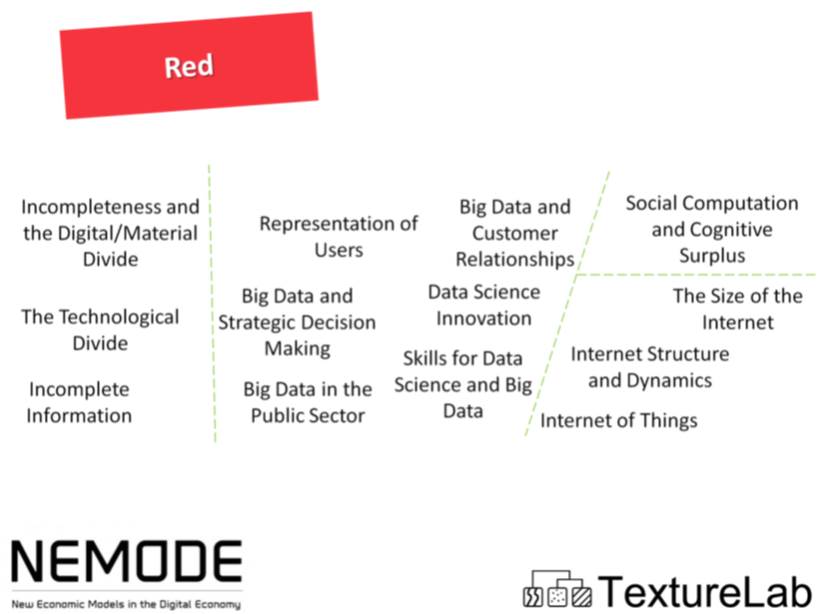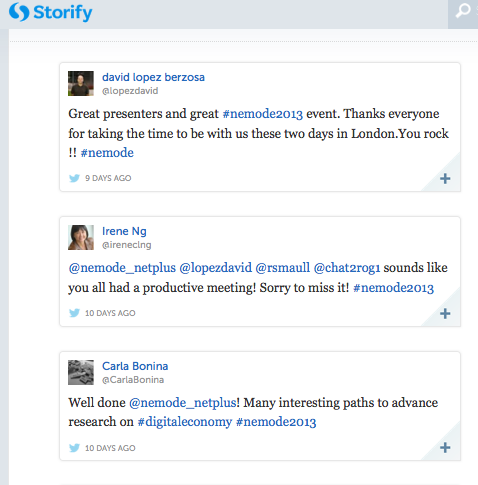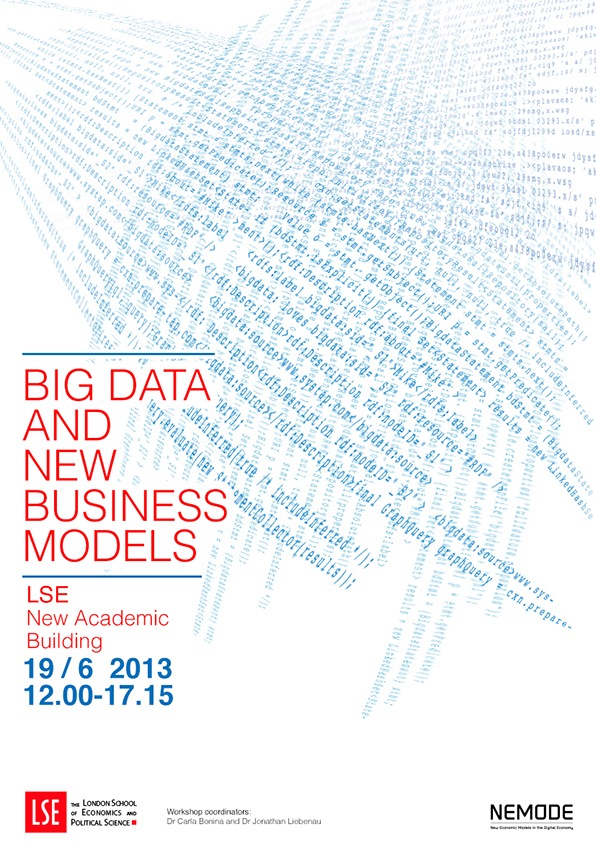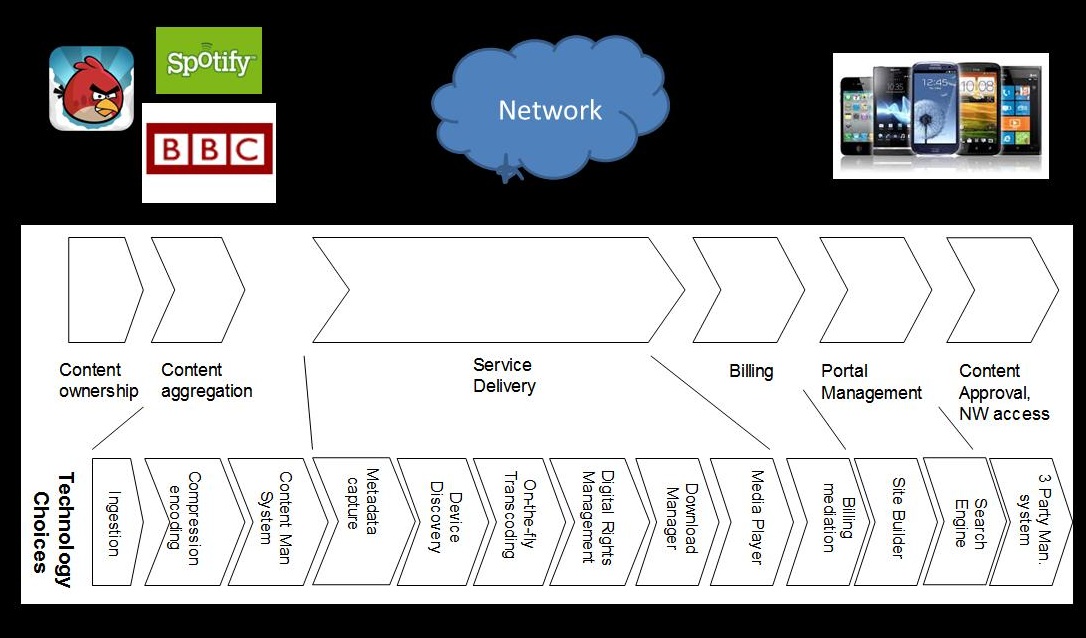 On the 1st and 2nd of July 2013, the LSE hosted the second New Economic Models in the Digital Economy (NEMODE) Community Meeting. In this post, LSE Tech fellow Carla Bonina shares the three research questions that emerged as part of the big and open data group: the value of open data, the labour market needs for profiting for big data and the ethical implications from experiments using big data.
On the 1st and 2nd of July 2013, the LSE hosted the second New Economic Models in the Digital Economy (NEMODE) Community Meeting. In this post, LSE Tech fellow Carla Bonina shares the three research questions that emerged as part of the big and open data group: the value of open data, the labour market needs for profiting for big data and the ethical implications from experiments using big data.
During the first days of July, we welcomed the second NEMODE+ community meeting at the LSE. NEMODE+ is a network initiative funded under the Research Councils UK Digital Economy research programme that brings together academics and practitioners to explore new economic models in the digital economy. During the first day, we heard insightful updates on projects that have already been funded by the NEMODE+ network. Day one also covered the overview of eight new projects that have been funded as part of NeMinDE, a sister initiative under the RCUK Digital Economy programme.
Day two was a hands-on project. One of the objectives of NEMODE+ is to stimu late new ideas, propose areas of research and policy engagement around the opportunities and challenges that digital technologies bring to the UK economy and society. Therefore, part of the activities of day two included working in groups around six areas of interest proposed by the delegates in advanced. I took part in the sub-group clustered around big and open data, along with four colleagues from other institutions. As a result of the brainstorming exercise, we arrived at three main research questions that were later presented to the whole community. I share these as follows with a brief explanation of the sub-set of questions or issues to address. Continue reading
late new ideas, propose areas of research and policy engagement around the opportunities and challenges that digital technologies bring to the UK economy and society. Therefore, part of the activities of day two included working in groups around six areas of interest proposed by the delegates in advanced. I took part in the sub-group clustered around big and open data, along with four colleagues from other institutions. As a result of the brainstorming exercise, we arrived at three main research questions that were later presented to the whole community. I share these as follows with a brief explanation of the sub-set of questions or issues to address. Continue reading








 Delegation of communications regulation to independent authorities seems to be a well-accepted norm these days; the ‘best way to go’. In this post, Tal Sokol reflects on different regulatory models and offers an assement based on the case of Israel. Afetr all, the author suggests, the general dislike that undelegated regulators seem to have received in the literature may be overrated.
Delegation of communications regulation to independent authorities seems to be a well-accepted norm these days; the ‘best way to go’. In this post, Tal Sokol reflects on different regulatory models and offers an assement based on the case of Israel. Afetr all, the author suggests, the general dislike that undelegated regulators seem to have received in the literature may be overrated.


 This blog has been active in commenting the issues sorrounding
This blog has been active in commenting the issues sorrounding 





